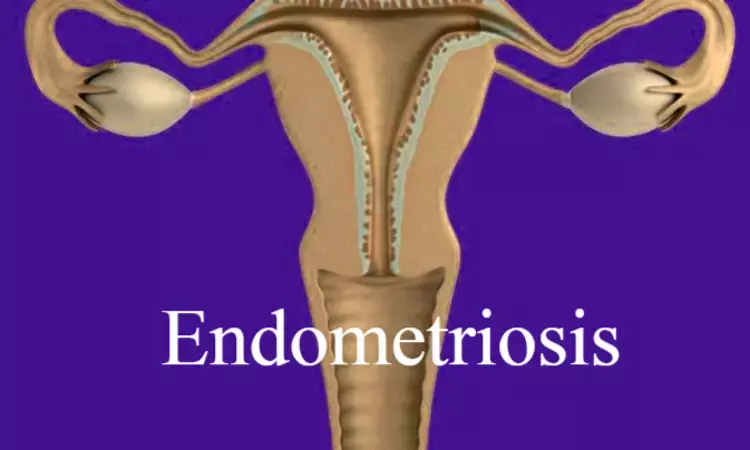- Home
- Medical news & Guidelines
- Anesthesiology
- Cardiology and CTVS
- Critical Care
- Dentistry
- Dermatology
- Diabetes and Endocrinology
- ENT
- Gastroenterology
- Medicine
- Nephrology
- Neurology
- Obstretics-Gynaecology
- Oncology
- Ophthalmology
- Orthopaedics
- Pediatrics-Neonatology
- Psychiatry
- Pulmonology
- Radiology
- Surgery
- Urology
- Laboratory Medicine
- Diet
- Nursing
- Paramedical
- Physiotherapy
- Health news
- Fact Check
- Bone Health Fact Check
- Brain Health Fact Check
- Cancer Related Fact Check
- Child Care Fact Check
- Dental and oral health fact check
- Diabetes and metabolic health fact check
- Diet and Nutrition Fact Check
- Eye and ENT Care Fact Check
- Fitness fact check
- Gut health fact check
- Heart health fact check
- Kidney health fact check
- Medical education fact check
- Men's health fact check
- Respiratory fact check
- Skin and hair care fact check
- Vaccine and Immunization fact check
- Women's health fact check
- AYUSH
- State News
- Andaman and Nicobar Islands
- Andhra Pradesh
- Arunachal Pradesh
- Assam
- Bihar
- Chandigarh
- Chattisgarh
- Dadra and Nagar Haveli
- Daman and Diu
- Delhi
- Goa
- Gujarat
- Haryana
- Himachal Pradesh
- Jammu & Kashmir
- Jharkhand
- Karnataka
- Kerala
- Ladakh
- Lakshadweep
- Madhya Pradesh
- Maharashtra
- Manipur
- Meghalaya
- Mizoram
- Nagaland
- Odisha
- Puducherry
- Punjab
- Rajasthan
- Sikkim
- Tamil Nadu
- Telangana
- Tripura
- Uttar Pradesh
- Uttrakhand
- West Bengal
- Medical Education
- Industry
Oral gonadotropin-releasing hormone antagonists effective for endometriosis-associated pain

Endometriosis is a chronic illness usually associated with pelvic pain and infertility. Endometriosis may be progressive and the pain associated with the condition can become debilitating. The goal of management is early diagnosis and treatment to prevent more advanced stages of the condition, especially as there is data suggesting the diagnosis of endometriosis is typically delayed by 8 to 10 years. The gold standard for diagnosis is laparoscopy with biopsy and histological demonstration of ectopic endometrial tissue. A presumptive diagnosis of endometriosis can often be made on history if the patient has classical symptoms such as pain with periods that is not completely relieved by nonsteroidal antiinflammatory drugs, pain that begins a day or two before the onset of menses, and acquired or progressive dyspareunia or dyschezia. Medical management to suppress endometriosis and improve quality of life should be started once a presumptive diagnosis is made.
However, since there is no cure for endometriosis, all present treatments involve long-term suppression of the condition and may have side effects. Therefore, a noninvasive marker of endometriosis, which could confirm a presumptive diagnosis and avoid the need for surgery would be reassuring for both physicians and patients.
Once the diagnosis, either presumptive or definitive, is made, long-term therapy is required as all present medical treatments of endometriosis are suppressive not curative.
outlines the effectiveness and safety of long-term medical management of endometriosis using progestins-only or gonadotropin-releasing hormone (GnRH) agonists with add back. Both of these treatments are associated with a large body of data demonstrating that they can completely eliminate pain, improve quality of life, and reduce the size of endometriotic lesions. Both progestin-only treatment and GnRH agonists are safe to use in women of any age and are effective long-term.
Hailan yan carried out systematic review and network meta-analysis to review the use of oral gonadotropin-releasing hormone (GnRH) antagonists and synthesize their efficacy and safety parameters for the treatment of endometriosis-associated pain.
Patients included Premenopausal women with endometriosis who had experienced moderate or severe pain. The Web of Science, Embase, Scopus, and MEDLINE were searched until April 10, 2022. Only randomized controlled trials were included. Main Outcome Measures were Endometriosis-associated pain, dysmenorrhea, dyspareunia, and noncyclic pelvic pain reduction.
Five studies and 6 randomized controlled trials, including a total of 2,796 women and 10 different doses of oral GnRH antagonist treatments, were eligible for inclusion. Almost all efficacy- and safety-related outcomes showed a dose-response relationship.
Regarding endometriosis-associated pain, the top 3 treatments were elagolix 400 mg, linzagolix 75 mg, and linzagolix 200 mg. The top 3 treatments to decrease dysmenorrhea were relugolix 40 mg, elagolix 400 mg, and relugolix 20 mg.
However, only high-dose treatments were significantly associated with most quality of life– and adverse effect–related outcomes. Relugolix 40 and 20 mg and elagolix 400 mg, with odds ratios of 6.88, 1.60 and 1.85 had a significantly increased incidence of adverse events.
Authors concluded Oral GnRH antagonists are effective for endometriosis-associated pain and dysmenorrhea and the patient global impression. The incidence of ovarian hypoestrogenic effects in a short-term duration was significant in a dose-effect response, particularly the highest dose.
Source: Hailan Ya et al; Fertility and Sterility
https://doi.org/10.1016/j.fertnstert.2022.08.856
MBBS, MD Obstetrics and Gynecology
Dr Nirali Kapoor has completed her MBBS from GMC Jamnagar and MD Obstetrics and Gynecology from AIIMS Rishikesh. She underwent training in trauma/emergency medicine non academic residency in AIIMS Delhi for an year after her MBBS. Post her MD, she has joined in a Multispeciality hospital in Amritsar. She is actively involved in cases concerning fetal medicine, infertility and minimal invasive procedures as well as research activities involved around the fields of interest.
Dr Kamal Kant Kohli-MBBS, DTCD- a chest specialist with more than 30 years of practice and a flair for writing clinical articles, Dr Kamal Kant Kohli joined Medical Dialogues as a Chief Editor of Medical News. Besides writing articles, as an editor, he proofreads and verifies all the medical content published on Medical Dialogues including those coming from journals, studies,medical conferences,guidelines etc. Email: drkohli@medicaldialogues.in. Contact no. 011-43720751


